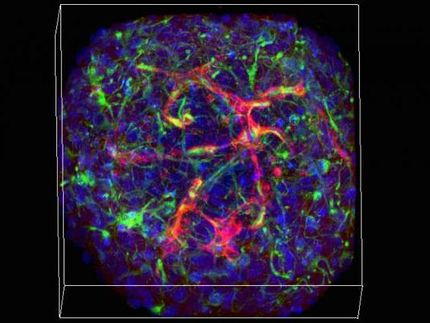Aspirin cuts heart attack risk but increases chance of dangerous bleeding
Regular aspirin should not be recommended for preventing heart attack and stroke in people without cardiovascular disease. The researchers, from Imperial’s National Heart and Lung Institute and King's College London, analysed 13 clinical trials – involving more than 164,000 participants – that assessed regular aspirin use to prevent heart attack or stroke in people without cardiovascular disease.

Pills, symbolic picture
RonnyK; pixabay.com; CC0
Reassessing the small benefit
Cardiovascular disease is an umbrella term for any condition affecting the heart and blood vessels, and is the leading cause of heart attack and stroke.
Previous research has suggested taking a regular low dose of aspirin may prevent heart attack and stroke even in people without cardiovascular disease. Aspirin thins the blood, therefore experts believed regular low levels could prevent formation of a clot, which would otherwise trigger stroke or heart attack.
However, the latest research suggests regular aspirin only results in a small benefit in people without cardiovascular disease – and this benefit is matched by an increased risk of serious internal bleeding.
Dr Sean Zheng, lead author from Imperial said: “Our study provides an up-to-date overview of the benefits and risk of aspirin use in people who have no known cardiovascular disease. A significant number of people worldwide who have never previously suffered heart attacks or strokes take aspirin with the expectation that it prevents such events from happening. Our study shows that the cardiovascular benefits of aspirin are modest, and matched by corresponding increases in serious bleeding risks.”
Updating recommendations
The study results suggest aspirin use was associated with lower risk (absolute risk reduction of 0.38 percent) for cardiovascular events (a composite of cardiovascular death, nonfatal heart attack and nonfatal stroke) and increased risk of major bleeding (absolute risk increase of 0.47 percent).
Dr Zheng explained: “We found that for every 265 patients treated with aspirin for 5 years, one heart attack, stroke or death from cardiovascular disease would be prevented. On the other hand, for every 210 patients treated with aspirin over the same period, one would have a serious bleeding event.”
Dr Zheng pointed out that more data is needed, but on the evidence available, aspirin should not be taken by people who do not have cardiovascular disease.
“Several guidelines continue to recommend the use of aspirin in prevention of heart attacks and strokes in people who are deemed to be at high risk, or in those with diabetes. Our study shows that in such groups, cardiovascular benefit and bleeding risks were matched with no clear evidence of a net benefit. This suggests the use of aspirin in patients without cardiovascular disease should not be routinely recommended.”
Original publication
Sean L. Zheng, Alistair J. Roddick; "Association of Aspirin Use for Primary Prevention With Cardiovascular Events and Bleeding Events - A Systematic Review and Meta-analysis"; JAMA; 2019
Other news from the department science
Most read news
More news from our other portals
See the theme worlds for related content
Topic world Diagnostics
Diagnostics is at the heart of modern medicine and forms a crucial interface between research and patient care in the biotech and pharmaceutical industries. It not only enables early detection and monitoring of disease, but also plays a central role in individualized medicine by enabling targeted therapies based on an individual's genetic and molecular signature.

Topic world Diagnostics
Diagnostics is at the heart of modern medicine and forms a crucial interface between research and patient care in the biotech and pharmaceutical industries. It not only enables early detection and monitoring of disease, but also plays a central role in individualized medicine by enabling targeted therapies based on an individual's genetic and molecular signature.




















































